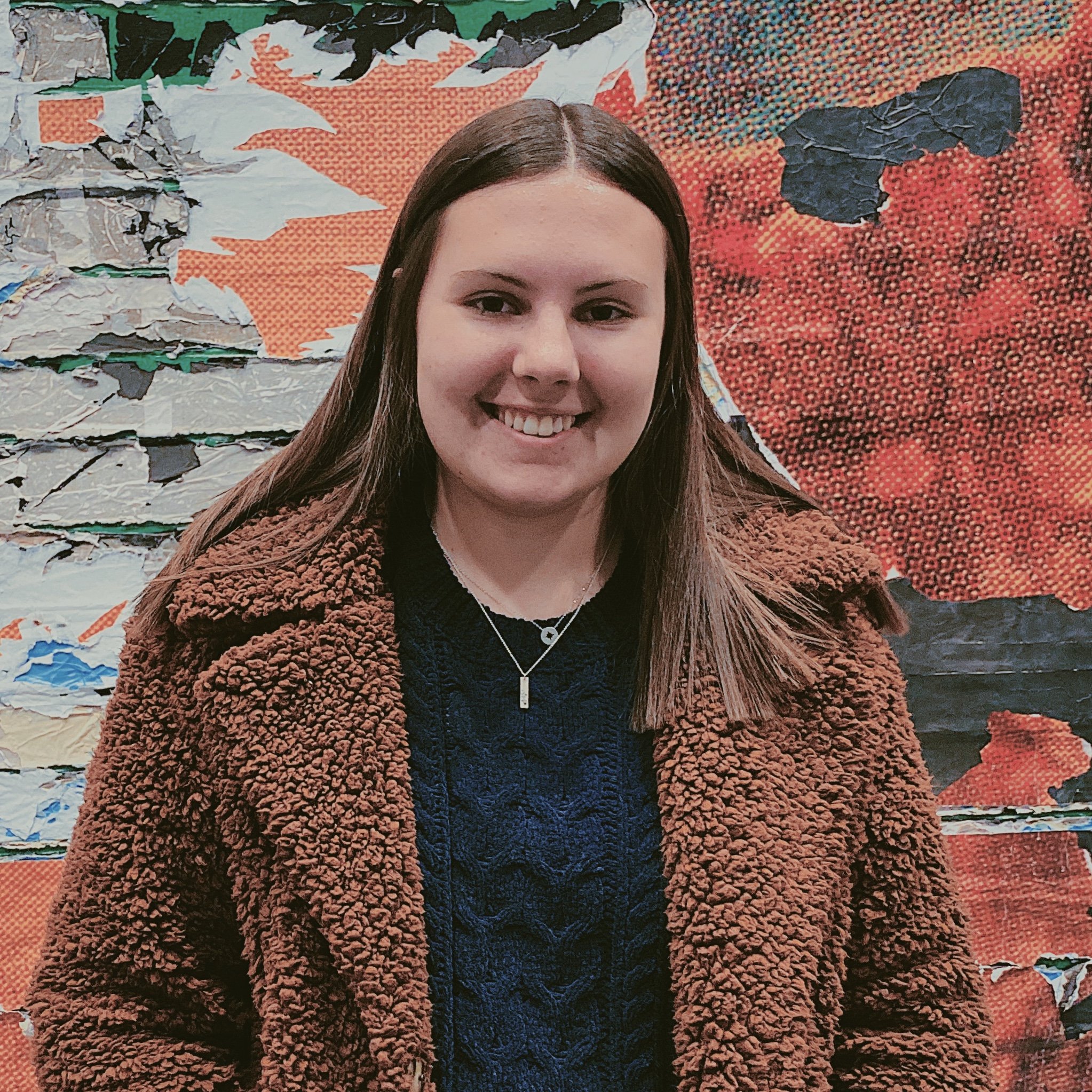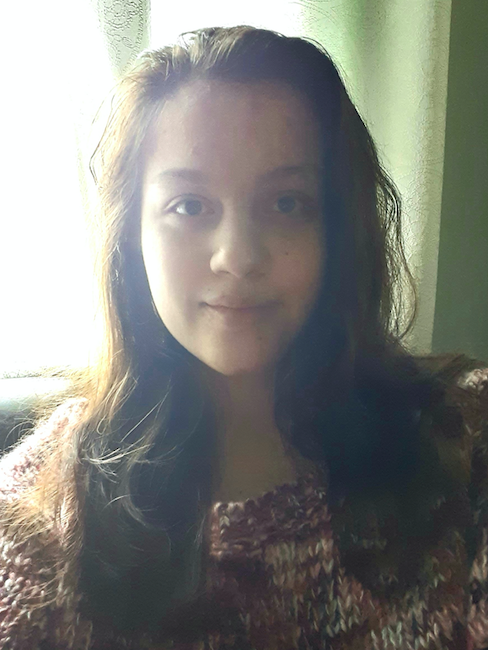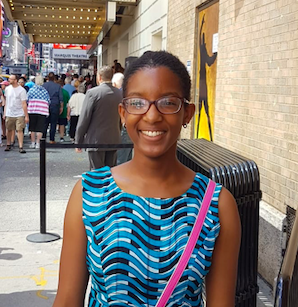About the Series
Thanks for stopping by to check out our new blog, Stories that Link Generations: Summer Series! Through the age-old art of narrative storytelling, we aim to discover the similarities between generations. Twice a month, we will explore a theme and how it has manifested itself in the life experiences of a teenager and the life experiences of an older adult.
Courage
In our first post, we explored the intertwining themes of perseverance and resilience. This week, we interviewed Mrs. Selma Sweetbaum, an older adult, and Jupleen Kaur, a teenager, to understand their experiences with courage.
As defined by Merriam-Webster Dictionary, courage is the “mental or moral strength to venture, persevere, and withstand danger, fear, or difficulty.” But where does one draw this strength from? And what lessons do they take away from such experiences? Read the stories below to delve deeper.
Meet Selma
Mrs. Selma Sweetbaum grew up in New York City as a first-generation American. She went to the College of the State of New York where she began to cultivate her passion for learning. Unfortunately, she was not able to complete her studies until years later when she married her husband, Harvey Sweetbaum, and moved to Maryland. She then attended the University of Maryland, where she finished her education and did graduate work in gerontology. For 35 years, she worked at the Jewish Community Center of Greater Washington, spending part of that time as its Director of Adult Services. Now, Mrs. Sweetbaum sits proudly on the Link Generations board!
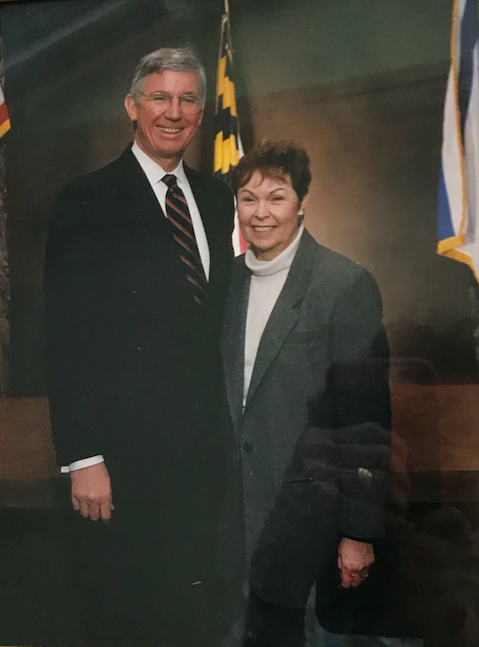
Selma Sweetbaum with Former Maryland Gov. Parris N. Glendening, PhD, MA
Open the Door
It was a warm, sunny day, and Selma was furious at her desk.
“Selma. Selma?”
She snapped out of her daze, unfolding her arms. “They can’t do this. This is obviously against the rules of Seniors Organized for Change!” she exclaimed.
“I know, but they already have everything scheduled!” her friend moaned. “I just don’t know what to do.”
“You won’t have to do anything,” Selma stood up from her seat. She hadn’t founded Seniors Organized for Change just so it could be violated by inviting this speaker to their next event–it would simply divide their club. She imagined everyone she worked for, turning to each other and arguing.
“Selma? Wait, where are you going?”
Headed towards the exit, she felt her hands grow cold. “I’m not going to let everything we’ve worked for go to waste. This can’t go on!”
She shut the door behind her. Her heart hammered in her chest, filling her ears with a rhythm so loud she was sure a nearby person could hear it, too.
It’s not going to be that bad.
After all, she had been more uncertain at other times in her life.
Thinking back to years ago, Selma remembered her husband, Harvey, and the panicked manner with which he had put on his coat. “It surely might be my last day at the office,” he said, hand on the doorknob.
“You have the private practice, we’ll just have to make do with that,” she reassured him. She pursed her lips. Ever since he had called the local press to report on an unjust issue at work, there had been a tangible tension around him. But they both knew he had done the right thing.
He gave her a small smile, and left.
The children had been snug in their beds upstairs, unaware of the reality their family was facing. At that time, they were her full time job. She hadn’t gotten the chance to finish her college education, though she yearned to immerse herself in hours of research.
But then, her husband was losing his job. What would that mean for their family? Would she ever be able to finish her education?
She laughed out loud, remembering how hopeless it had seemed then. But, after all, here she was. Not only graduated, but working at an incredible Jewish Community Center while she ran her own club on politics for older adults. Her husband was successfully retired now, and the kids were grown and doing well.
With the memory still lingering in her mind, she found herself walking to the Director’s Office of the Jewish Community Center with the same courage her husband had carried then.
And there she stood, before the door of the Director’s Office, hand shaking. There she stood, staring at the metal doorknob, feeling like the door was towering over her. There she stood, feeling like she was defending herself with her back against the wall.
Maybe it was okay that she was nervous. Maybe being nervous wasn’t the point. Perhaps the point was to stand up for what she believed in, against any other obstacles that came in the way.
She knocked on the office door.
“Come in!” the Director shouted from inside.
Selma took a deep breath, and pushed the door open.
~~~
Years after the meeting with the director, Selma found herself sitting in that director’s seat. Looking back on the day where she stood up to the director, it’s strange to her.
Something so scary in its time has faded into something I can be proud of.
Maybe this is what courage was. Running into what makes you afraid to get to where you want to be.
Sitting in her new director’s desk, she knew that this was where she wanted to be.
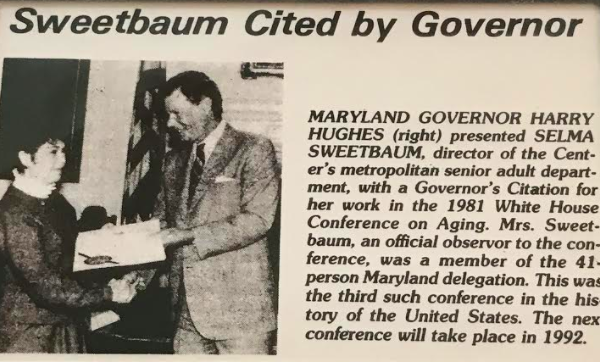
Meet Jupleen
If you’re like Jupleen Kaur a few months ago, the prospect of a major injury is unfathomable and preserved only for pro-athletes. If you’re like Jupleen Kaur a few months ago, you’re wrong.
Meet Jupleen, an easygoing 16 year old from Rockville, MD with an avid passion for tennis and the cello. In December of 2019 (seems like an eternity ago!), she sustained an unlikely injury, and has been recovering ever since. Titled “A Memorable Victory”, below is her inspiring story of fear, courage, and recovery.
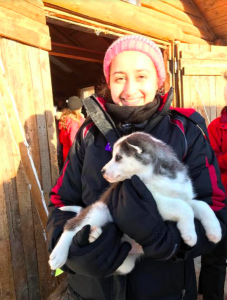
A Memorable Victory
This is not how I’m supposed to be spending my weekend.
Jupleen, clad in uncomfortable blue scrubs, shifted slightly on the stiff hospital bed. She was trying to keep the bottom half of her body still for the MRI scan, per doctor’s instruction. Headphones blaring to block out the loud whir of the machine, she felt like anything but the firework Katy Perry was trying desperately to convince her she was.
It had been just two weeks ago when she had felt most comfortable–on the tennis court. Jupleen and her partner had beat each opponent before them and worked their way up to the top court in a competitive game of Team 21. She could feel the win, victory only a few more swings of the racket away. It was a memorable practice.
Just not for the reason she had anticipated.
Having predicted the spin of the ball, Jupleen had prepared for a backhand when all of a sudden, a loud “SNAP!” split the air, and she fell on her butt. It took her a while to register that the sound came from her–her knee, to be exact. In the same moment, she noticed the hollow, fading bounce of the neglected tennis ball, moving further away from her peripheral vision. Most memorable, and ironic, were the ringing words of her friend’s brother: “I hope it’s not an ACL tear!”
And now, at the clinic, these were the exact words she was trying to push out of her head as Ariana Grande’s high note flooded her ears.
My knee did hurt really bad, like, really bad. But of course it’s not an ACL tear, right?
~~~
Jupleen limped towards the couch to rest, hoping to relieve the pressing pain in her knee.
“What were the results of the scan?” she asked her mother, avoiding her eyes to hide her nervousness.
“Honey,” her Mom hesitated, “the doctor said your ACL’s torn.”
WHAT?! Instead, what came out was a stoic, “Thanks, Mom.”
Ignoring the now prominent sensation in her knee, Jupleen climbed gingerly up the stairs. As soon as she reached her room, she could feel her fingertips reaching for the iPad on the nightstand beside the bed. In seconds, Google had autofilled the rest of “how to fix acl tear” in her web browser. She clicked frantically on the first website that popped up. Words like “anterior cruciate ligament”, “surgery”, and “physical therapy” flew past her eyes, but barely registered.
She had never had an injury like this before: the career-ending kind. Jupleen tried to stop her mind from spiraling into thoughts of surgery on her knee, and the prospect of the pain it would bring. The unbearable idea of the months of recovery. The fearful thought of not being able to play tennis for a whole. Entire. Year. Closing out of that tab and pressing the next website, she knew she couldn’t let the idea of an ACL tear sink in, and yet, despite her efforts, the tangible pressure of fear and panic weighed heavier on her shoulders by the second.
~~~
This is not how I’m supposed to be spending my winter break.
The familiar thought passed through Jupleen’s head as she found herself, once again, lying on a hospital bed. Her heart was pounding as nurses set her up to the IV in preparation for her ACL Reconstruction Surgery. After a few days of research, her Dad had found a doctor that would be able to repair her ACL by using tissue from her quadriceps. The idea sounded intrusive, even scary. She closed her eyes, hoping to block out the room.
“You’ll wake up in no time! See you soon!” said one nurse, administering anesthesia. Her cheerful tone seemed unfitting for the situation.
How could this happen to me? Jupleen thought as she felt her body get heavier, sinking into the cushion beneath her. But if I’m going to get back on that court, I have to do this. When Jupleen pried her eyes open, the lights stung harsher than they had before. But she could still make out the nurses, smiling down at her, one by one, as they moved to the other side of the room. She felt the support of her mother, father, and sister in the waiting room. Everyone else was there for her. I just need to be here for myself, and make it through. And with that final thought, her mind drifted into sleep…
Jupleen resumed physical therapy ten days later. Racked with guilt, she could barely remember what basic tasks felt like without needing help from her family members. Before, she had felt assured in being the boss of the tennis ball, of putting her own twist to the swing of the racket. Now, that sense of control was replaced bitterly by the weakness of her injured knee.
And yet she could not deny the similarities. Jupleen knew the same fire that allowed her to play and beat her opponents was the same fire it took to overcome that surgery. In fact, she knew that tennis was as much a mental sport as it was a physical sport. So that one day, when she walked back onto the court, while it would take months to return her level of physical fitness, the mental strength she needed to face her fears had been within her all along.
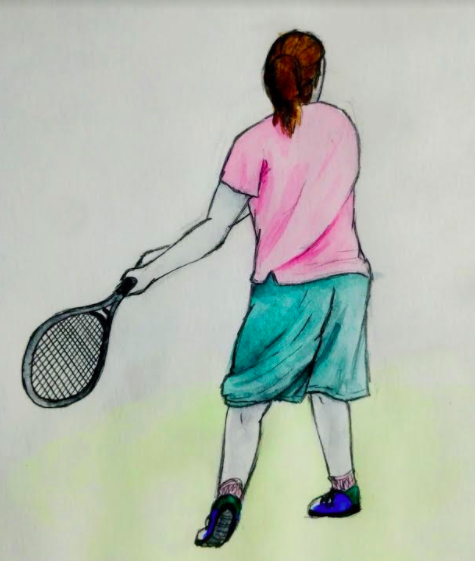
Conclusions on Courage
Mrs. Sweetbaum and Jupleen’s inspiring stories show that all of us have courage within us in times of need. They both drew strength from a place of great emotion: Mrs. Sweetbaum found it in her admiration for her husband, and Jupleen found it in her fierce passion for tennis. And while many of us associate courage with the idea of standing up for what you believe in, as Mrs. Sweetbaum so bravely did for her organization, courage can also mean pushing past self-doubt and disbelief to face a challenge, as Jupleen did. In the end, Mrs. Sweetbaum was able to advocate for her beliefs. As of today, Jupleen has returned to playing matches, socially distanced, at the tennis court and Mrs. Sweetbaum still cares deeply about the Jewish Community Center she was the director of for many years.
We would like to thank our speakers for sharing their experiences with us. Next time you need strength to overcome a fear or challenge, we hope you can draw upon their stories to help you through!
